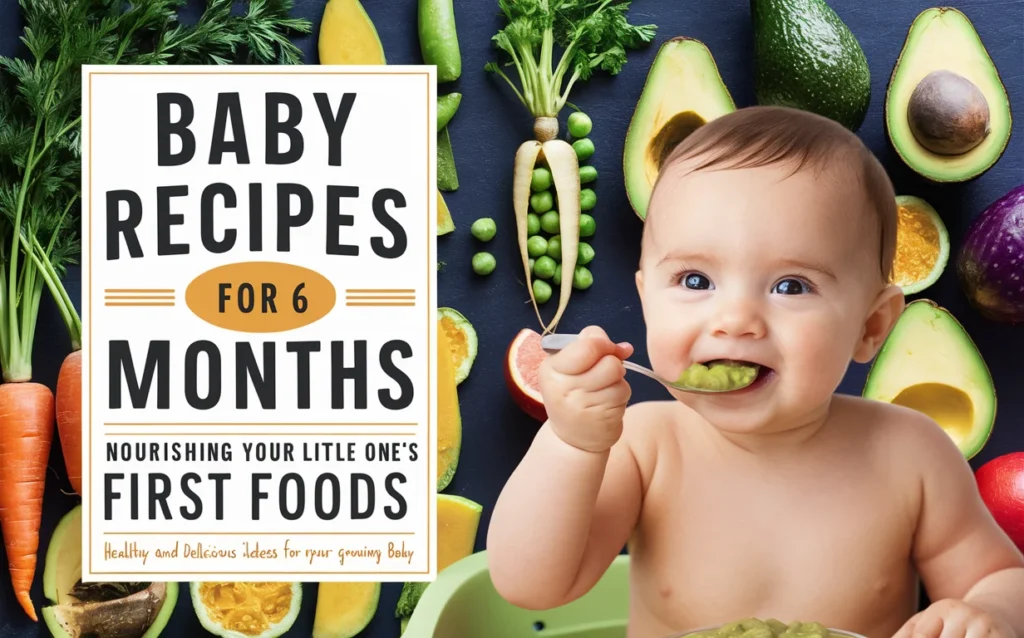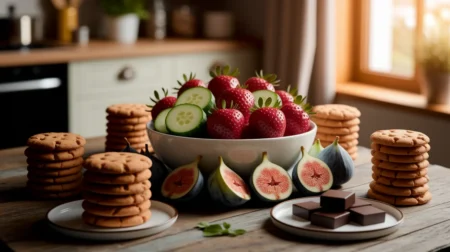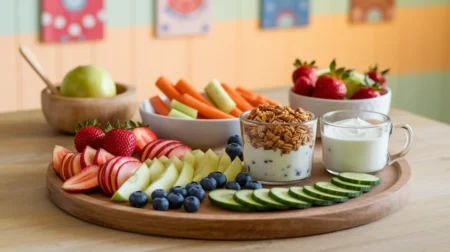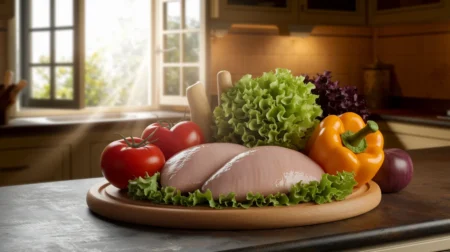Baby Recipes for 6 Months
Key Takeaways:
- Introducing baby recipes at 6 months is a crucial step in your child’s development.
- Simple baby food combinations can help expand your infant’s palate while ensuring they receive essential nutrients.
- Homemade baby food recipes allow you to control the ingredients and create healthy meals tailored to your baby’s needs.
Introducing solids to your baby at around 6 months is an exciting milestone for parents. Baby recipes at this stage focus on simple, nutritious purees that are easy for your little one to digest. This guide will provide you with a variety of 6 month old baby food recipes and ideas to ensure your baby receives a healthy start to solid foods.

Understanding the 6-Month-Old Diet
At 6 months, babies are typically ready to try solid foods alongside breast milk or formula. It’s essential to start with single-ingredient purees, which help identify any food allergies or sensitivities. Here are some important considerations:
- Texture: Foods should be pureed until smooth to avoid choking hazards.
- Allergens: Recent guidelines suggest introducing common allergens (like eggs and peanuts) early, as it may reduce the risk of allergies.
- Nutrient Variety: Incorporating a range of foods helps ensure a balanced intake of vitamins and minerals.
Essential Ingredients for 6-Month-Old Baby Food
Fruits
- Bananas: Soft and easy to mash.
- Avocado: Creamy texture and healthy fats.
- Apples: Sweet and packed with fiber when cooked and pureed.
- Pears: Gentle on the stomach and hydrating.
Vegetables
- Carrots: Sweet and nutritious when cooked.
- Sweet Potatoes: Rich in beta-carotene and easy to digest.
- Peas: High in protein and iron.
- Zucchini: Mild flavor and soft texture.
Grains
- Oatmeal: A good source of iron and fiber.
- Brown Rice: Provides energy and can be easily pureed.
Easy Baby Recipes for 6 Months
1. Creamy Avocado Puree
Ingredients:
- 1 ripe avocado
Preparation:
- Cut the avocado in half and remove the pit.
- Scoop the flesh into a bowl and mash it with a fork or blend until smooth.
- Serve immediately to prevent browning.
Nutritional Benefits:
Avocado is rich in healthy fats, which are vital for brain development.
2. Banana Puree
Ingredients:
- 1 ripe banana
Preparation:
- Peel and slice the banana.
- Mash with a fork or blend until smooth.
Nutritional Benefits:
Bananas provide potassium and are naturally sweet, making them a favorite for many babies.
3. Sweet Potato and Carrot Mash
Ingredients:
- 1 sweet potato
- 1 carrot
Preparation:
- Peel and chop the sweet potato and carrot.
- Steam until tender (about 20 minutes).
- Blend or mash together until smooth.
Nutritional Benefits:
This mash offers a combination of vitamins A and C, supporting immunity and vision.
4. Apple and Pear Sauce
Ingredients:
- 1 apple (peeled, cored, and chopped)
- 1 pear (peeled, cored, and chopped)
Preparation:
- Combine the apple and pear in a pot with a little water.
- Cook until soft (about 10-15 minutes), then blend until smooth.
Nutritional Benefits:
This sauce is high in fiber and vitamin C, aiding digestion.
5. Pea Puree
Ingredients:
- 1 cup peas (fresh or frozen)
Preparation:
- Steam the peas until tender (about 5 minutes).
- Blend with a bit of water until smooth.
Nutritional Benefits:
Peas are a great source of plant-based protein and vitamins.
6. Oatmeal and Banana Mash
Ingredients:
- 1/4 cup rolled oats
- 1 ripe banana
Preparation:
- Cook oats according to package instructions.
- Mash the banana and mix with the cooked oats until smooth.
Nutritional Benefits:
This combination provides fiber and energy, making it a filling meal.
7. Brown Rice and Carrot Puree
Ingredients:
- 1/4 cup brown rice (cooked)
- 1 carrot (peeled and chopped)
Preparation:
- Steam the carrot until tender (about 10-15 minutes).
- Blend the carrot and cooked brown rice with water until smooth.
Nutritional Benefits:
This dish provides a good source of carbohydrates and vitamins.
Baby Food Combinations for 6 Months
As your baby becomes accustomed to single flavors, you can start experimenting with combinations. Here are some simple baby food combinations:
- Sweet Potato and Peas: A delicious and nutritious mix.
- Apple and Banana: A naturally sweet puree that babies love.
- Carrot and Avocado: Creamy and rich in nutrients.
- Oatmeal with Apple and Cinnamon: Add a pinch of cinnamon for flavor as your baby gets older.
Healthy Baby Recipes and Ideas
Creating a diverse menu of baby recipes helps encourage healthy eating habits. Here are some healthy food recipes for infants that you can prepare:
1. Zucchini and Quinoa Puree
Ingredients:
- 1 zucchini (peeled and chopped)
- 1/4 cup cooked quinoa
Preparation:
- Steam the zucchini until soft (about 10 minutes).
- Blend the zucchini and quinoa until smooth, adding water as needed.
Nutritional Benefits:
This puree provides a combination of protein and fiber.
2. Spinach and Sweet Potato Mash
Ingredients:
- 1 cup fresh spinach
- 1 sweet potato
Preparation:
- Steam the sweet potato until tender (about 20 minutes).
- Add the spinach during the last 5 minutes of cooking.
- Blend until smooth.
Nutritional Benefits:
Rich in iron and vitamins A and C, this dish supports overall health.
Storing and Serving Baby Food
Storage Tips
- Refrigerate: Store homemade baby food in airtight containers in the refrigerator for up to 3 days.
- Freeze: Freeze portions in ice cube trays, then transfer to zip-top bags for long-term storage (up to 3 months).
Serving Suggestions
- Serve baby food at room temperature or slightly warmed.
- Always check the temperature before feeding your baby.
Conclusion
Introducing baby recipes for 6 months is an exciting journey for both parents and babies. By preparing fresh and nutritious baby food recipes, you can ensure your little one gets the best start in life. Remember to explore different flavors and combinations to keep mealtimes enjoyable and healthy.
FAQ
1. When should I start introducing solids to my baby?
Most babies are ready to start solids around 6 months, but it’s essential to consult your pediatrician for personalized advice.
2. How can I tell if my baby is ready for solids?
Signs of readiness include sitting up with minimal support, showing interest in food, and being able to close their lips around a spoon.
3. Can I mix foods together?
Yes, once your baby has tried single-ingredient purees, you can start introducing combinations to expand their palate.
4. How long can homemade baby food be stored?
Homemade baby food can be stored in the refrigerator for up to 3 days or frozen for up to 3 months.
5. Are there any foods I should avoid?
Avoid honey, whole nuts, and foods that can pose a choking hazard, such as popcorn or whole grapes, until your child is older.










